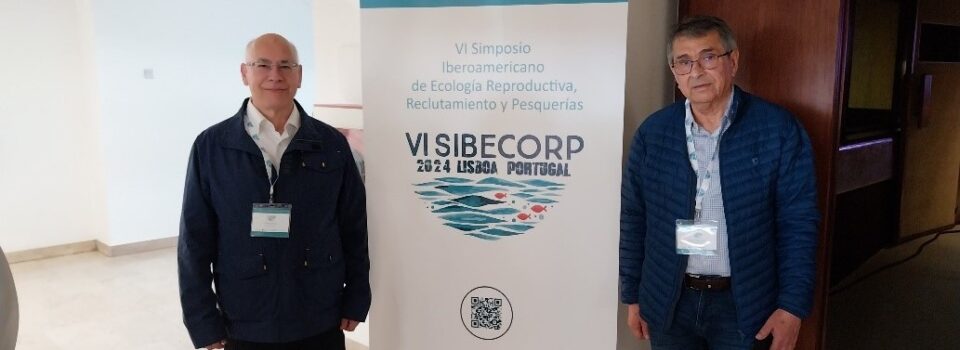IFOP delegation presents at the VI SIBICORP Symposium in Portugal
November 27th, 2024The VI Ibero-American Symposium on Reproductive Ecology, Recruitment and Fisheries (SIBICORP) was held in the city of Lisbon, Portugal from November 11 to 15, 2024.
A national delegation made up of eight researchers from both Chilean universities and the Fisheries Development Institute participated in this meeting. In this regard, IFOP’s participation was made up of researcher Carolina Hernández-Santoro with a presentation entitled: Changes in the reproductive tactics of the anchovy (Engraulis ringens) Compensation or adaptation to environmental variability? And researchers Sergio Mora and Patricio Barría presented two investigations: Comparative analysis of reproductive aspects of the swordfish (Xiphias gladius) and the common sardine (Strangomera bentinki) in the South Eastern Pacific Ocean; and The use of conceptual models as a collaborative tool for modeling the swordfish (Xiphias gladius) stock in the South Eastern Pacific Ocean.
All the presentations were well received and allowed for the creation of links and transfer of knowledge and potentially joint research with researchers from various countries.
The event allowed to learn about the state of the art in various topics of reproductive ecology, the advances that are being made in the last decade, scientific innovations in genetics, energy, morphometry and histology. The growing importance of the bioenergetic approach in reproductive ecology for the determination of annual fertility and spawning frequency, with the purpose of obtaining more precise estimates of the spawning biomass of the stock.
In relation to the recruitment process, the reinforcement of fisheries monitoring and the use of innovations in the field of biological indicators at a biochemical level such as proteomics and genomics have become important to detect the effects of climate change. In particular, scientific evidence of a decrease in lengths in fish from the northern hemisphere with increasing surface and bottom temperatures was reported. During this meeting, the importance for countries to have good fisheries statistics, to reinforce the sampling coverage of catches (target species and accompanying fauna), and advances in the ecosystem approach to fisheries was reinforced. On the other hand, the importance of having quality databases, access to various environmental information platforms, the development of modeling and the use of Artificial Intelligence techniques applied to fisheries are contributing with new scientific evidence of this phenomenon. On the other hand, the use of genetic techniques to determine the origin of recruits in fishing areas where individuals from various populations converge was addressed. Genetic studies are also being carried out at a macro scale in order to understand the adaptive radiation of fish, whose processes are crucial to determine possible colonization of new habitats, in addition to their phylogenetic relationships, which are of vital importance in this decade marked by environmental changes and responding to the behavior of fish in the face of alterations that occur in fishing areas.
Finally, in the management of fisheries, it was mentioned that the increase in fishing effort, illegal, unreported and unregulated fishing are affecting all Ibero-American fishing nations to a greater or lesser extent. In some artisanal fisheries in the European Union, individual transferable quotas are being implemented to control the increase in fishing effort, and the negative externalities of this process are being absorbed.
